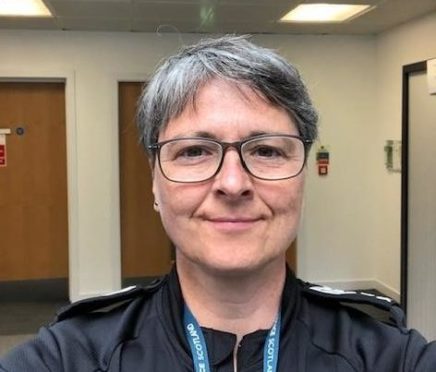Sergeant Tricia MacLean, of Police Scotland’s preventions and interventions team, discusses her work helping victims of ‘hidden harms’.
What are hidden harms?
Hidden harm can be a confusing statement. What does it mean? Who does it affect? And what can you do about it?
Hidden harm is when someone is suffering or being caused harm and nobody knows about it. Harms include physical, psychological, sexual, neglect, self-harm or self-neglect.
Anyone dependent on others for care is particularly vulnerable. This may be due to disability, age, not being able to speak English or being financially dependent on someone else.
Sadly, there are always people who will prey on vulnerabilities and exploit others for personal gain. In North East Division, we hold regular and local awareness-raising campaigns and support national campaigns, including those of our partners.
Campaigning raises awareness
In March, we supported a campaign targeted at those aged between 11 to 17 years and their parents or carers about child sexual exploitation, and where to go for help. This was part of a coordinated response from the Scottish Government, Police Scotland, and Child Protection Committee Scotland, following increased reports of online child sexual abuse and exploitation.
April, saw us raising awareness of modern slavery and encouraging people to report incidents of labour exploitation, which affects men, women and children. Even in Scotland, some people may find themselves forced to live in terrible conditions, without access to passport or money, working excessive hours, without care for their health or safety.
Another recent campaign focussed on hate crime.
Third party reporting centres are partner agencies, with staff trained to speak to anyone who has witnessed or been the victim of hate crime.
They are able to report incidents to the police on your behalf. You can find a list of third party reporting centres on the Police Scotland website. Do get in touch if you think your organisation could support this.
Shut Out Scammers is an ongoing national trading standards campaign, which we are happy to support. It aims to target bogus callers, those who take money from vulnerable people for shoddy work, or sometimes, without doing any work at all.
You are not alone
By highlighting threats and risks, we hope to prevent crime but also to reassure victims that they are not alone.
Fear of stigma or embarrassment, or simply not knowing that support is available, leaves people suffering in silence or without hope. If you or someone you know is at risk or suffering from harm right now, help is available. You won’t be judged or ignored if you reach out.
Police Scotland cannot tackle hidden harms alone.
We work closely with other agencies, and importantly, with individuals and communities in the north-east. We rely on you to report anything suspicious or anything which doesn’t sit comfortably with you. If you think you know someone who is at risk of harm, please report it.
See the Act Against Harm website for further information about hidden harms, how to report concerns, and the help and support available.
If you think a crime is being committed, contact police on 101 (999 in an emergency), or report information anonymously via Crimestoppers on 0800 555111.
